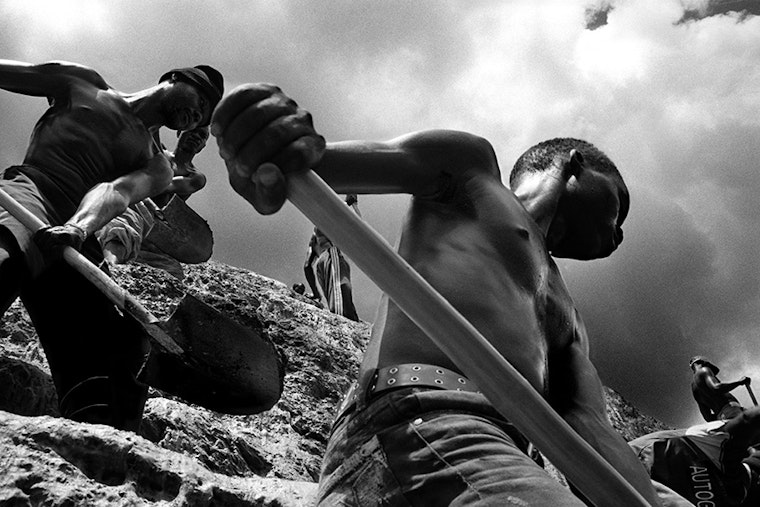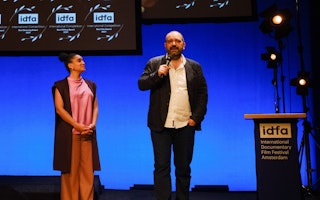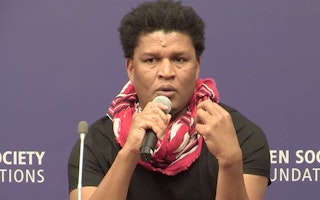Photography, Expanded: Rethinking Engagement and Impact
By Anna Overstrom-Coleman

What happens when experts in technology, software design, media, gaming, and film collaborate with documentary photographers? That’s what participants at Photography, Expanded hope to find out. Sponsored by the Open Society Foundations and the Magnum Foundation, the conference aims to inspire photographers to experiment with digital tools to mobilize audiences around pressing social issues.
I caught up with photographer Marcus Bleasdale, who will be presenting his work-in-progress, Zero Hour: Congo, an immersive game based on the conflict in the Democratic Republic of Congo.
You’ve dedicated many years to addressing the conflict and resulting human rights violations in DRC through partnerships with organizations like Human Rights Watch. With support from an Open Society Foundations Audience Engagement Grant, you’ve challenged banks and businesses directly involved in the mineral extraction industry, and you’ve also created multimedia pieces for educational curricula. Why gaming? And why now?
Natural resource exploitation in DRC is a problem in which we are all complicit. Grassroots users of electronic products (smart phones, tablets, laptops, cameras, and game consoles) are largely unaware that they are involved. Developing a game that could entertain and at the same time guide people to increased awareness seemed to be the right direction to follow. We increasingly see youth today not engaging in mainstream news. If they are not coming to traditional platforms for information, I figured I would bring mainstream news to them.
People would play your game using technology that requires the very resources that are fueling the conflict. What are the challenges of tapping into this consumer appetite in order to educate people and raise awareness?
We inaccurately assume that those who buy products and mobile applications geared toward entertainment don’t want to learn about current affairs. But if we don’t intelligently engage them on the platforms they want to use, we lose this audience.
Then how do you connect that audience to ongoing advocacy or conversations about what’s happening in DRC?
The characters in the game would be based on people in the field: doctors, nurses, aid workers, journalists, photographers, child soldiers. NGOs would be involved in the game’s design so that the user is educated as well as entertained. These organizations could also benefit from revenues generated by the players, which could aid real world projects in specific places.
Your aim is to have a strong range of characters representing all sides, races, and politics within the Congo story. What do you want to convey with the character of the photojournalist?
The photojournalist will hopefully be the link between the aid/NGO world and the people who are impacted by the conflict. They will be able to go behind rebel lines to see the use of child soldiers and to report on the violence, displacement, and desperate health situation. In this way, the photojournalist will be the eyes for the game “world.”
Zero Hour: Congo’s project team includes media producer Daniella Steadman and the CEO of nDreams, the digital games developer and publisher Patrick O’Luanaigh. What expectations do you all have for Photography, Expanded?
We hope we can learn about process and understand more about the needs to deliver such a product to the market, both on a messaging level as well as on a financial level. The desire is to arrive at a point where individuals or corporations are interested in partnering to make this a reality.
Follow—and join—the conversation about Photography, Expanded via the Twitter hashtag #PhotoEx.
Until October 2015, Anna Overstrom-Coleman was a senior program coordinator with the Open Society Documentary Photography Project.


